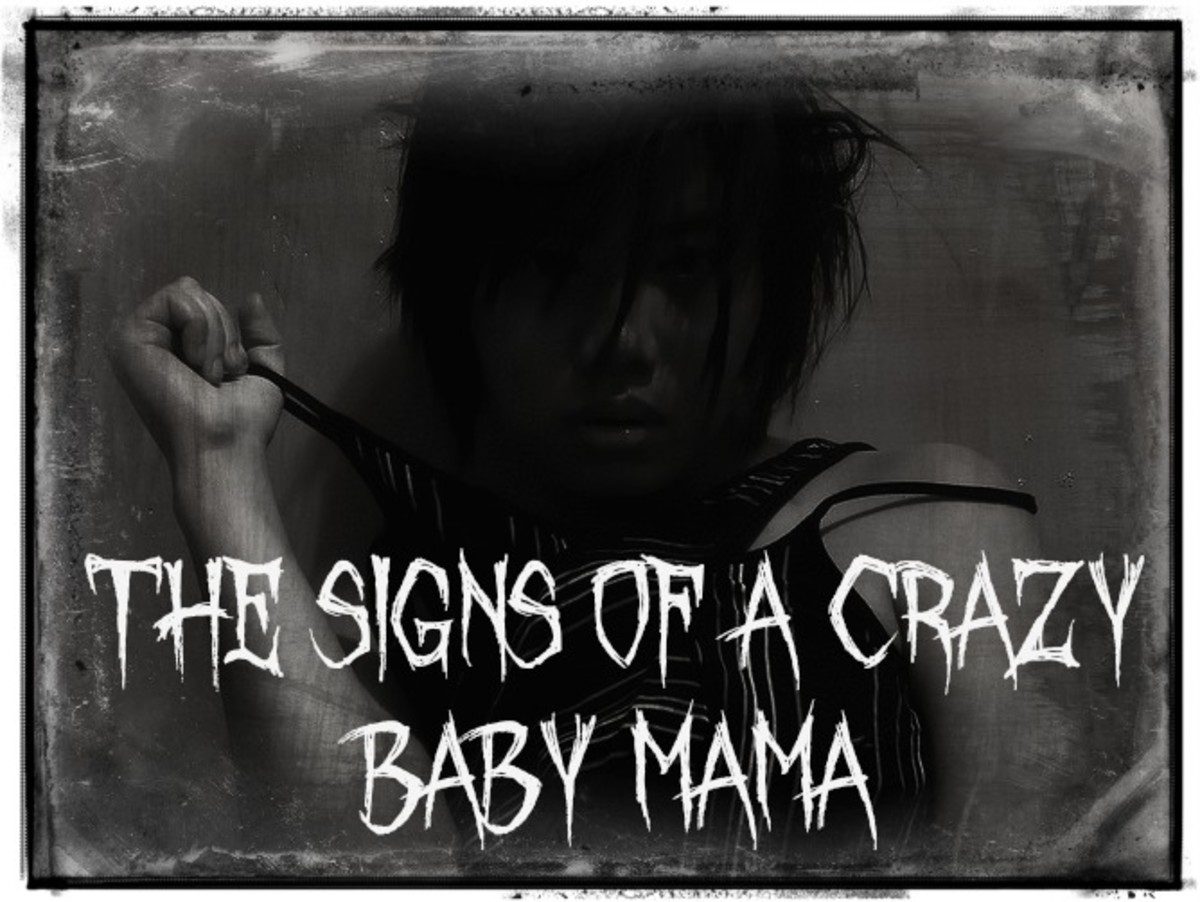Why is it so hard to tell your child about sex?

Sex is an important subject that at some point needs to be addressed with your child.
(Rather than being brushed under the carpet like it was back in the olden days when I was a child!)
Children are inquisitive, they like to know things. Our child is extremely inquisitive and wants to know everything, which is a good thing. And we have always tried to help her with that as much as we can, and to give her open and honest answers.
From an early age she has wanted to know everything she could, and she doesn't stop asking questions until she completely understands the thing she's trying to figure out. While this is a really great trait for a child to have, it has been a bit tricky when trying to preserve her innocence. What to tell her? And when to tell her what?
This hub isn't necessarily going to answer these questions, but I will discuss some of the issues that might come up when you're considering them.

When my daughter was three, a lot of her friends' mums became pregnant with their second child, and she started to ask how the babies got into their mummies' tummies. I used a very simple explanation, about how when a man and a lady love one another, sometimes a baby comes. For a very short while this satisfied her curiosity.
Then her question changed to the more specific "how EXACTLY does the baby get into its mummy's tummy?"
Some of her friends' parents went down the "special cuddle" route, and were successful, but a more curious child wants the special cuddle explained to them in detail so that they understand exactly how one does it, and how it would cause a baby to be planted and to grow.
Not wanting to get into the details of it at such an early age I promised her that when she is old enough I will buy her a book that will explain it all properly. And after that, apart from reminding me occasionally that I'm going to buy her a book she has largely lost interest in the subject, (or at least shelved the issue).
Now aged five, her questions haven't stopped but her curiosity has moved onto other equally challenging subjects, such as what happens to you after you die, how does the tooth fairy get into your house, is there really a god, and if so how is it even possible for someone to live in the sky?
We have not shied away from any of these questions and have answered them - or have at least given them a good shot! And I am planning on buying her the promised book, but need to decide on when might be the best time for this.
In the meantime I have been researching some of the books that are around for this specific purpose. And many of them are really quite graphic; one even has amusing cartoons pictures of people having sex in different positions. I'm sure that some people would be fine with this, but as liberal as I consider myself to be, I'm not sure that I would be comfortable with this, or that my daughter would be ready for this kind of graphical information.
My favourites so far (based on the reviews on Amazon UK), are called "How Did I Begin?" by Brita Granstrom and Mick Manning, and "Let's Talk About Where Babies Come From" by Robie H. Harris. They apparently both treat the subject in a very matter-of-fact, light way, without embarrassment. Which is exactly what I am striving for.
The recommended age for many of these books seem to be from age seven upwards. And my daughter's school doesn't start teaching sex education until year five, so they must think that the appropriate age to impart this knowledge on a child is closer to nine years old. But every child is different, and the obvious answer is to talk to your child, in appropriate terms for their age (with or without the help of a book), when they want to know the answers AND when you feel that they are ready to know them.

Some fears about teaching a young child about sex might be:
- The worry that they may, quite simply, be traumatised by the answers.
When I found out about sex I was 11 or 12 years old, and I was pretty traumatised even then! "You have to do what???"
Surely it would be damaging to teach children about sex before they were emotionally ready to know.
But on the other hand...
if you have an inquisitive child, isn't it better to teach them the facts in a very matter-of-fact and truthful way when they're younger, rather than leaving it until puberty is on the horizon, emotions and sensitivities are all over the place, and all bodily functions are seen as overly "yucky"?
I would possibly have been slightly less disturbed if I'd grown up knowing the simple facts, and been given the opportunity to ask more whenever I needed to know more.
- The embarrassment factor
The idea that we're going to have this big, awkward and embarrassing conversation may come from our childhood experiences with our own parents, or from the typical sit-com episodes we watched, where incompetent dad or mum tries to talk to child about that facts of life - with hilarious consequences!
We may also worry that it will be awkward to talk to our kids about such personal things, and that they will feel strange imagining their parents doing such a thing. (And who doesn't feel strange when they imagine their parents having sex?)
Again, keeping conversations as normal and matter-of-fact as you can will help a lot. Also answering any questions that come up naturally as you go along is a better approach than sitting your kid down and preparing a big speech.
Depending on their ages they may well feel embarrassed or strange about it. Younger children are more likely to just accept the facts without the giggle/yuck-reaction. But if your child seems embarrassed then reassure them that that's fine, but that sex is a natural thing, like eating and breathing, and there's no reason to feel weird about it. And let them know that if they have any more questions or things that they don't understand then they should just ask you.
- Concerns about what other people will think.
As soon as a child learns about something, they like to immediately share it with all their friends. There is nothing wrong with this, it's human nature - and young children especially, are proud to know new things.
But even if I decided that my child was completely ready to know the facts of life right now, (aged five), her friends' parents may not feel the same way about their kids knowing. And I'm pretty sure that they would not appreciate their child learning them from another five year-old.
But putting myself in this "other parent" position, I would rather my child were getting correct information in the playground rather than the stuff of the typical playground rumour-mill.
I certainly remember the rumours going around on this subject, and for a long time I believed that babies were made by sticking something (I wasn't sure what), into your belly button. And then I thought that the only way the baby could come out was if the doctor cut different coloured layers of squares from your tummy. Wow!
- Equating knowledge of the facts of life with a loss of innocence.
A big concern that lots of people have is the feeling that once your child knows about sex they will lose some of their innocence, and become less child-like. I admit that this is a fear that I have from time to time. Once you know something, you can't "un-know" it.
But again, handled in a very natural and no-nonsense way it does not have to be glamorised or shocking. Explain how babies are made just as you would explain how water turns to steam, how magnets work or any other scientific process.
Of course it's up to each family whether they decide to add any other details, such as whether it's best to be married or to love somebody before you have sex with them, or to just keep it simple at first, by addressing the questions that they ask. This would probably depend on the age of your child, your judgement of their emotional understanding, and your own personal views on sex and relationships.
Time to Change
And some people might also be concerned about the following.
It is sometimes claimed that the earlier you tell a child about sex, the earlier they will want to try it out. Personally, I'm not convinced by this argument as there are surely many complicated factors involved in this decision.
Others claim the opposite is true - that if you give your child honest information about their bodies, puberty, sex and contraception early on, then they are more likely to wait before having sex, and to make sensible choices about contraception before having a sexual relationship.
People sometimes worry that if they teach their kids about sex and the correct names for body parts and they then talk about them at school, then their teachers might suspect abuse.
I also don't see too much validity to this argument. Teachers know that there are many other signs to look out for in the case of abuse, and that it is healthy for children to be taught the correct terms for sexual organs, just like with non-sexual organs.
A very important consideration is that it is important to teach your children about their private parts, precisely so that they understand when somebody is doing something to them that is wrong.

When and how to talk to children about sex is a difficult subject because of the many different views people have on this and the emotions involved.
As with anything in parenting, there is no "right" way to go about it, you have to choose the way that feels right for you an your child.
But it's obviously very important to keep the channels of communication open on this subject and not make it into something that is taboo, as you want your child to grow up into a healthy and responsible teen and adult.






